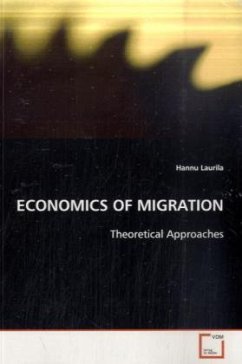
The Economics of National Identity and Patriotism
An Application to Taxation and Globalization
Versandkostenfrei!
Versandfertig in 6-10 Tagen
32,99 €
inkl. MwSt.

PAYBACK Punkte
16 °P sammeln!
New developments in behavioral economics and decision theory have consequences for economic policy and finance. The understanding of the behavior of individuals within a certain social, political or economic environment lies at the heart of these theories. Group identity may influence human behavior, and a better understanding of this mechanism is important for the design of economic incentives. Recent studies analyze the influence of national identity and patriotism on redistribution and taxation systems. Within this context, the author investigates two opposing theories which he attempts to ...
New developments in behavioral economics and decision theory have consequences for economic policy and finance. The understanding of the behavior of individuals within a certain social, political or economic environment lies at the heart of these theories. Group identity may influence human behavior, and a better understanding of this mechanism is important for the design of economic incentives. Recent studies analyze the influence of national identity and patriotism on redistribution and taxation systems. Within this context, the author investigates two opposing theories which he attempts to incorporate into a framework based on common tax literature and migration theory. As a new element, he considers differences in economic development and productivity between countries as a further contribution to the existing work in a rather young field of study. The author argues that differences in productivity levels of economies should be taken into consideration when examining a potential relation between patriotism and tax burdens. In addition, he contributes to the explanation of a certain political phenomenon in Western Europe in the age of globalization.












